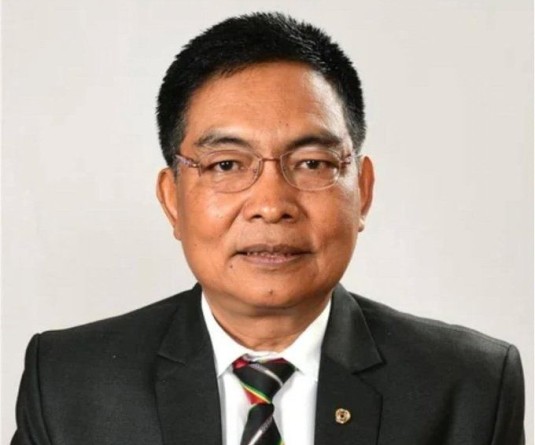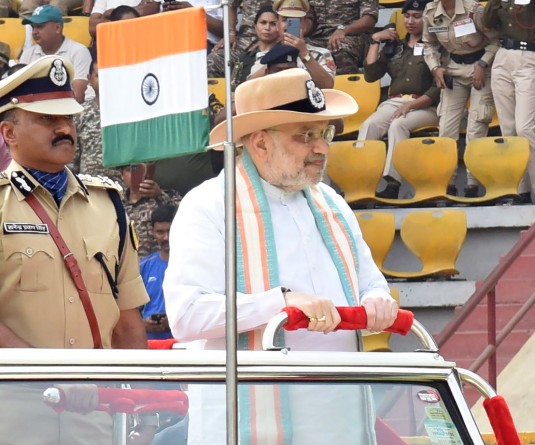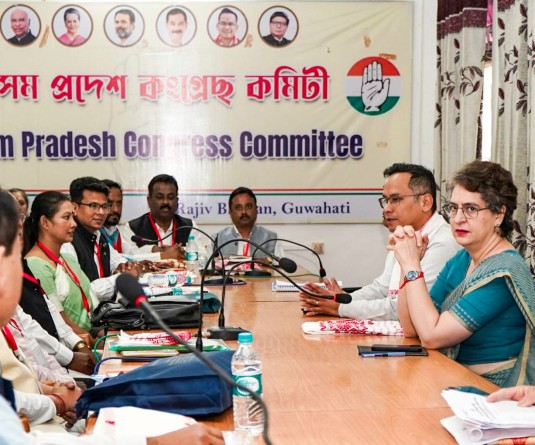
Newmai News Network
Senapati | October 1
The All Naga Students’ Association, Manipur (ANSAM) reaffirmed its stance today to extend non-cooperation towards the "Indian armed forces" until the Armed Forces Special Powers Act (AFSPA, 1958) is repealed from "Naga homeland". The Naga student body said it will not rest until many "historical injustices are addressed".
The ANSAM then expressed "profound dismay and disquiet" at the Supreme Court’s decision to dismiss the criminal proceedings against the 30 Indian Army personnel implicated in the killing of "14 innocent Naga civilians" at Oting, Mon, Nagaland on December 4, 2021. "The tragic event, which claimed the lives of our fellow Nagas, continues to be a poignant reminder of the community’s collective pain and trauma," the ANSAM said. "We had fervently hoped for justice and accountability for the senseless and brutal loss of our people. However, the court’s decision to exonerate those responsible without holding them accountable is not only disheartening but also an affront to the memory of the victims and their grieving families", the Naga student body also said. It stated that the Oting incident serves as a stark reminder of the "numerous atrocities and crimes committed by the Indian armed forces under the guise of the Armed Forces Special Powers Act (AFSPA)".
The ANSAM then said the "people of Naga homeland" have suffered immeasurably at the hands of the Indian military, who have been granted impunity to commit egregious human rights violations with impunity. The ANSAM said it was deeply perturbed by the Supreme Court’s decision to dismiss the criminal proceedings against the army personnel involved in the Oting massacre without prosecution, "which is a clear travesty of justice". The Oting incident is not an isolated occurrence, but rather a part of a long history of violence and oppression perpetrated by the Indian Armed Forces against innocent civilians in "Naga homeland", the Naga student body added.
The ANSAM then pointed out the Oinam Incident of 1987, "where 27 innocent souls were killed, 3 women raped, 5 women sexually molested, 2 women forced to give birth in public, 340 persons tortured, 96 persons arrested and detained for weeks, 125 houses burnt, 172 houses dismantled, 10 churches dismantled, 6 schools dismantled and numerous other atrocities were committed is just one example of the countless crimes committed by the Indian military under AFSPA". The ANSAM further said the lack of justice and accountability for "these heinous crimes" has created a deep sense of mistrust and resentment among the Naga people towards the Indian government.
the Naga student body then rued, "Despite of our repeated appeals to repeal Armed Forces Special Powers Act, 1958 in Naga homeland, the extension of AFSPA to the entire state of Manipur as disturbed areas excluding 19 police stations in Imphal valley for period of another six months with effect from October 1, 2024 on the pretext of 'law and order' while we are experiencing a relative peace in Naga areas unlike other parts of the state is very unfortunate and highly questionable".
The ANSAM "vehemently opposed this continuous arbitrary imposition" of the AFSPA, 1958 by the Government of India "particularly in Naga homeland". While opposing the extension of the draconian law AFSPA in "Naga homeland", the ANSAM put on record that, ever since the promulgation of the said infamous act "Naga people have been experiencing undeclared war where the innocent Naga villagers were terrorized by the Indian Army while not sparing even the women and children".
The ANSAM also said the Naga people have been terribly affected by the "torrential brutalities unleashed by the Indian security forces with the impunity power sanctioned by this savage act". Innocent Naga people were used as an object of soft target on the pretexts of maintaining law and order, it also said. The act is not merely a brutalization of security forces but legitimization of violence which is draconian in nature, anti-people in spirit and a cross violation of human rights, it further said. "Such a devilish law should not have any place in this modern era," it stated.
The ANSAM then Nagas are peace loving people and have been maintaining peace and harmony in all the "Naga homeland" since the signing of Indo-Naga Ceasefire in 1997 which paved a way to signing of the Framework Agreement between the Government of India and the National Socialist Council of Nagaland (NSCN-IM) on August 3, 2015 recognizing the unique history and situations of the Nagas and both the entities have committed to start a new relationship based on sharing of sovereign power, "but the blatant and continuous imposition of AFSPA in Naga homeland negates the spirit of Indo-Naga peace process which is at the highest level and reflects the insincerity on the part of Government of India in resolving the longest political issues in the southeast Asia".
The Association implored on the Government of India "as a nation of the largest democracy" to uphold the principles of democracy, justice and human rights and demands the following to usher an enduring peace in the northeast region that justice be served for the "Oting massacre" and that prosecution sanctions be issued against the 21 Para (SF) personnel involved.
It also implored for immediate repeal of the contentious AFSPA, 1958, from "Naga homeland which has been a tool of oppression and terror for far too long".
The ANSAM also demanded for justice for various atrocities and crimes committed by Indian Armed Forces under AFSPA, 1958 in Naga Homeland and Northeast, India.
It further demanded for an inclusive and honourable Indo-Naga settlement based on the Framework Agreement signed on August 3, 2015 recognizing the Naga flag, constitution and integration as an inalienable rights of the Nagas.
The Naga student body said then said it will not rest until many "historical injustices" are addressed and justice is served and "our people are protected from further human rights violations".




.jpg)

